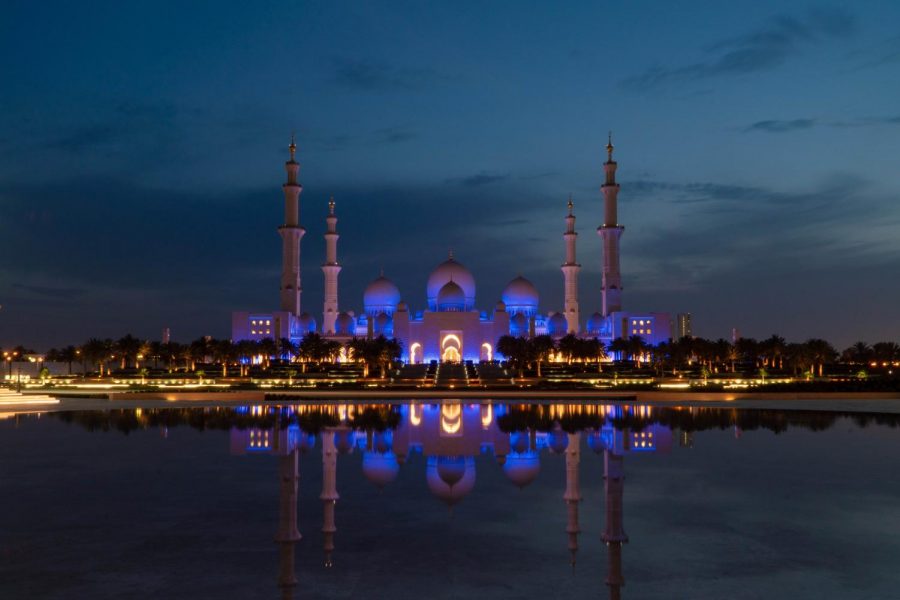Muslim Community Adjusts to COVID-19 Challenges During COVID-19
With mosques closed around the world and social distancing practices in place, Ramadan is largely different this year. Many Muslims can no longer partake in communal iftars, group prayers or large celebrations. Ramadan is a social month of the year and now many Muslims must change traditions to adhere to the growing pandemic.
In the midst of COVID-19, Muslims and supporting community members are still finding ways to see the silver-lining during uncertain times.
Ramadan occurs one month out of every year, when Muslims around the world devote their time to fasting, prayer and charity work. The holy period falls on the ninth month of the lunar calendar and begins with the new moon. This year, the start date for Ramadan—depending on the time zone—was April 23 or 24.
During Ramadan, Muslims fast from sunrise to sunset. Fasting is one of the five pillars of Islam and is meant to be an opportunity to get closer to God, practice self-control and act in solidarity with the less-fortunate. It is also a time of self-reflection, self-improvement and generosity.
Healthy, adult Muslims primarily observe Ramadan by fasting. However, children, pregnant women, elderly, ill or traveling Muslims do not have to partake in fasting and can make the practice up at another time.
Charity work is an important activity during Ramadan since fasting is meant to bring compassion and empathy for the hungry. Muslims may participate in food drives through mosques or by inviting community members to break the fast when the sun sets—a meal referred to as iftar.
At the end of the month, Ramadan ends with a celebration called Eid al-Fitr. This days-long celebration includes feasting, gift-giving, prayer and spending time with family and friends.
The Al-Ma’idah Initiative is an organization with the goal of bringing together Muslim and Christian communities in Seattle. The initiative hosts monthly, casual events at a coffee shop for members of both religious communities to have conversations that promote friendship and understanding.
Last year, the initiative hosted an iftar-inspired dinner during Ramadan. The event had almost 100 attendees of both Muslim and Christian faiths. This year, this event was canceled due to the stay-at-home order in Washington state.
Founder James Rayment is not letting the pandemic stop him from furthering his organization’s goal of bringing together communities, especially during Ramadan. With all events canceled, Rayment is spending his free time reaching out to Muslim community members to check-in and provide support during Ramadan.
“I’m really focusing on the one-on-one relationships at this point and using that to build a better basis for the in-person events later,” Rayment said. “We’re going to try and bring the new things out of this—the new relationships, new opportunities and we want to hold onto those things we gain while working to get back to what we’ve lost and come out of this stronger.”
Malick Ndiaye, a French professor at Seattle University, is making the most of the month of Ramadan during COVID-19. Ndiaye has accepted that due to the pandemic, taking part in Ramadan looks different this year. However, he is still choosing to find the positive aspects of Ramadan.
“In every situation, there is positivity to consider, we have more time to strengthen our practice of Islam, educate ourselves in many ways and do prayers on time, which is a blessing,” Ndiaye said in an email statement. “Being able to fast is always a wonderful thing, as it means that I am in good condition, mentally and physically, so external factors are not of a big influence.”
While being at home with her family, Maya Jamaleddine, a fourth-year psychology major at Seattle U, is taking this month to strengthen her relationship to God and bond with her mom through faith.
Jamaleddine misses the community traditions she is used to during Ramadan, such as volunteering at a kitchen or going to IHOP for a middle-of-the-night feast, but she plans on doing her charity work when she is able. She is making the most of the holy month by praying with her mom and taking part in a Quran reading group with her aunt, who lives in Lebanon.
“I think it’s ok if traditions change as long as you have a good intent in your heart and that’s what I’ve been telling myself,” Jamaleddine said. “Even though I am not able to break the fast with my childhood friends that I’m used to—we can do it later, or we can do it online, and what’s important right now is that we all take care of ourselves.”
Although Ramadan will not be the same under this year’s circumstances, Muslims and community members are doing their best to uncover the good during uncertain times and continue to practice and connect to their faith.
The World Health Organization (WHO) published guidelines on how to safely celebrate Ramadan around the world during COVID-19.
Seattle U also published virtual resources for Muslim community members during Ramadan.











